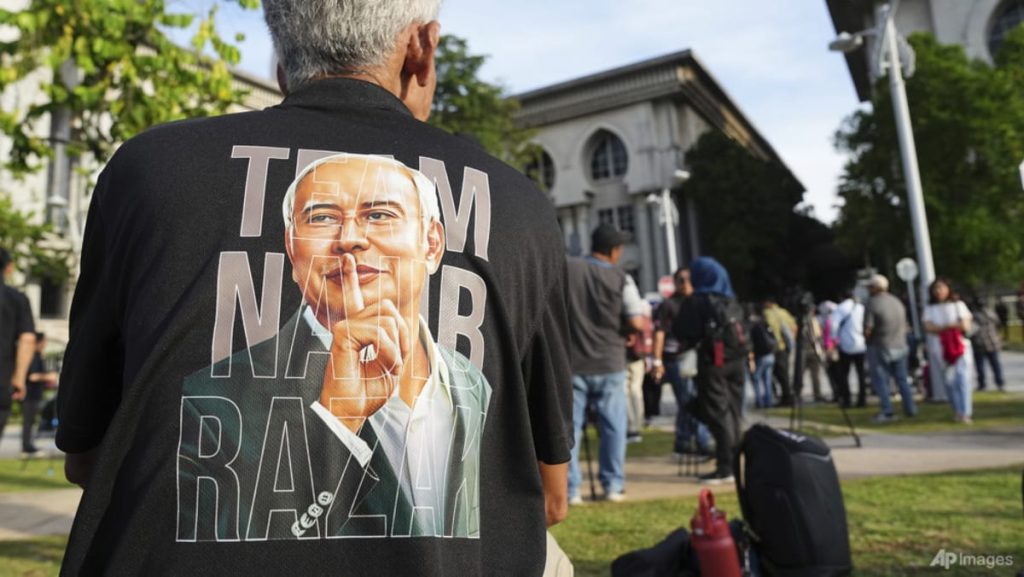PAS’s fervent support for Najib Razak, a figure embroiled in corruption scandals, appears perplexing on the surface. While initially perceived as a tactical maneuver to destabilize the unity government by exploiting existing fissures within UMNO and between UMNO and its coalition partners, the extent of PAS’s support, including a massive rally, suggests a deeper, more calculated strategy. This goes beyond mere political opportunism; it represents a high-stakes gamble with potentially significant rewards. PAS’s willingness to risk its established stance against corruption, its alliance with Bersatu, and even its historically antagonistic relationship with UMNO indicates a calculated pursuit of a substantial prize: a direct path to power within the government.
The core motivation behind PAS’s unwavering support for Najib lies in its ambition to join the ruling coalition. Holding the largest bloc in parliament with 43 seats, PAS has consistently harbored aspirations of governmental power, with persistent rumors circulating for the past two years. The party recognizes the “royal addendum” issue, concerning the potential pardoning of Najib, as a potent disruptor with the potential to trigger a governmental reshuffle. By championing Najib’s cause, PAS positions itself as a key player in any ensuing reorganization, anticipating a prominent role in a potential new configuration, possibly displacing the Democratic Action Party (DAP). This calculated move allows PAS to leverage Najib’s faction within UMNO to gain access to the corridors of power.
Furthermore, aligning with Najib offers PAS a strategic avenue to navigate its increasingly strained relationship with Bersatu, its current coalition partner. Internal disputes within the Perikatan Nasional coalition, exemplified by the recent resignation of PAS Vice-President Ahmad Samsuri Mokhtar as the coalition treasurer, underscore the growing rift between the two parties. By siding with Najib and potentially joining a UMNO-led government, PAS could effectively extricate itself from this increasingly precarious alliance. This maneuver allows PAS to bypass the internal conflicts within Perikatan Nasional and potentially forge a new, more advantageous partnership with UMNO.
PAS’s support for Najib, therefore, represents a multi-faceted strategic play. It’s a calculated risk aimed at achieving a significant political objective – entering the government. The party is leveraging the “royal addendum” controversy to position itself as a crucial ally to UMNO’s Najib faction, anticipating a prominent role in any potential government reorganization. This strategy simultaneously addresses PAS’s internal challenges with Bersatu, offering an escape route from a fraught partnership and the potential for a more favorable alignment.
However, this gamble carries substantial risks. PAS’s overt support for a figure convicted of corruption undermines its long-standing claims to upholding Islamic principles of justice and accountability. This could alienate segments of its support base and damage its credibility as a party committed to clean governance. Furthermore, the potential realignment with UMNO, a party with which it has a history of animosity, could create internal friction and raise questions about PAS’s ideological consistency.
Furthermore, the success of this strategy hinges on several unpredictable factors. The outcome of the “royal addendum” issue remains uncertain, and the extent of its impact on the unity government is difficult to predict. UMNO’s internal dynamics are also volatile, and the ascendancy of Najib’s faction is not guaranteed. Even if a government reshuffle occurs, it’s not certain that PAS would be invited to participate, or that it would be offered a sufficiently influential role to justify the risks it has taken.
In conclusion, PAS’s support for Najib is a high-stakes political gamble driven by the ambition to join the government. By aligning with Najib, PAS aims to exploit the “royal addendum” controversy to gain entry into a potentially reorganized government, simultaneously resolving its internal tensions with Bersatu. This strategy, however, carries substantial risks, including potential damage to PAS’s reputation and the uncertainty of a successful outcome. The party’s future hinges on the unpredictable trajectory of the “royal addendum” issue, UMNO’s internal power dynamics, and the willingness of other political actors to accept PAS as a governing partner. Ultimately, the success or failure of this gamble will significantly shape the future of Malaysian politics.

